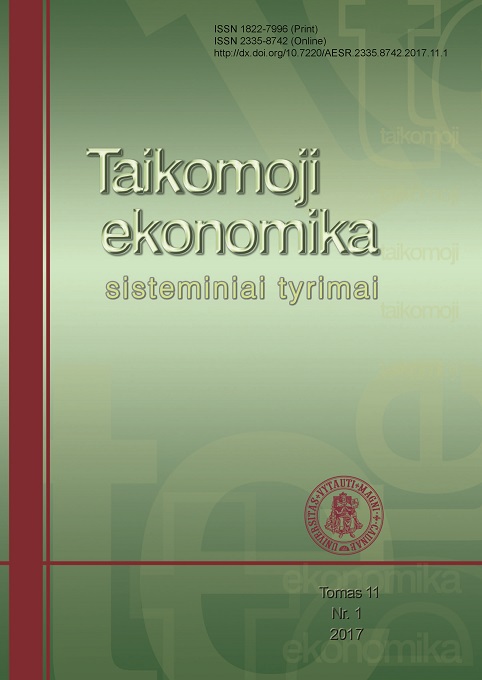The Assessment of Influence of Functional Government Expenditure on Subjective Wellbeing in EU
The Assessment of Influence of Functional Government Expenditure on Subjective Wellbeing in EU
The Assessment of Influenceof Functional Government Expenditure on Subjective Wellbeing in EU
Author(s): Justinas Kisieliauskas, Jurgis Gabrielius RudgalvisSubject(s): Economy, Public Finances, Socio-Economic Research
Published by: Vytauto Didžiojo Universitetas
Keywords: Subjective wellbeing; Happiness; Government functional spending; Welfare economics;
Summary/Abstract: In this paper, researchers analyze the influence of functional government spending on satisfaction with life in EU countries. The main problem arises from the theoretical conflict between the traditional view of welfare economists, which states that the government is responsible for maximization of social welfare through real¬location of resources against studies proving that government spending has negative effects on social welfare, as the government is not effective in resource reallocation. Research under this topic discloses contradicting results on the effect of functional government expenditures on wellbeing, which leaves a place for morein-depth researches on this topic. Does government spending have any effect on one’s wellbeing? Does increase in functional spending increase the level of well being? Are there any limitations on government spending? The research compares data of 26 EU countries using graphical and linear regression analysis to answer these questions and to see if there are any turning points, which would show that changes in government spending may have a contrary effect on wellbeing.
Journal: Taikomoji ekonomika: sisteminiai tyrimai
- Issue Year: 11/2017
- Issue No: 1
- Page Range: 13-26
- Page Count: 14
- Language: English

